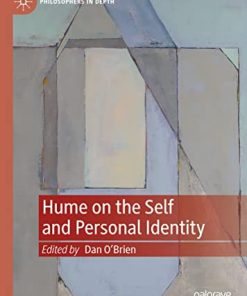What Matters in Survival: Personal Identity and other Possibilities 1st Edition
$50.00 Original price was: $50.00.$25.00Current price is: $25.00.
What Matters in Survival: Personal Identity and other Possibilities 1st Edition – Ebook Instant Download/Delivery ISBN(s): 9780192894717,0192894714,9780192647542, 0192647547

Product detail:
- ISBN 10: 0192647547
- ISBN 13: 9780192647542
- Author: Douglas Ehring
This study is about what matters in survival—about what relation to a future individual gives you a reason for prudential concern for that individual. For common sense there is such a relation and it is identity, but according to Parfit common sense is wrong in this respect. Identity is not what matters in survival. In What Matters in Survival, Douglas Ehring argues that this Parfitian thesis does not go far enough. The result is the highly radical view “Survival Nihilism,” according to which nothing matters in survival. Although we generally have motivating reasons to have prudential concern, and perhaps even indirect normative reasons for such concerns there is no relation that gives you a basic, foundational normative reason for prudential concern. This view goes beyond what Parfit calls the “Extreme View.” It is the “More Extreme View” and is in effect something like an error theory about prudential reason as a special kind of normative reason.
Table of contents:
- 1. The Divergence Argument
- 1.1 Fission
- 1.2 Anticipation Objection
- 1.3 What’s Next?
- 2. Fission and Shared Stages
- 2.1 Reconciliation through Wholly Shared Stages
- 2.2. Reconciliation through Partially Overlapping Stages
- 2.3 Stage Theory
- 3. Fission and Indeterminacy
- 3.1 Johansson’s Determinate/Indeterminate Strategy
- 3.2 Johnston’s Annexation Strategy
- 3.3 What’s Next?
- 4. Generalizing from Fission
- 4.1 Parfit’s Rationales for the E-to-IDMND Inference
- 4.2 The E-to-MMND Inference
- 4.3 Another Mapping
- 4.4 What’s Next?
- 5. The Triviality Argument
- 5.1 The Triviality Argument
- 5.1.4 A Wholly Physical Relation
- 5.2 Rejecting Anti-Causalism
- 5.3 Digression: Back to Stage Theory
- 5.4 What’s Next?
- 6. The Non-Triviality Principle and Objections to Its Application
- 6.1 Problems with Formulating the Non-Triviality Principle
- 6.2 Empirical, not Conceptual, Constitution Objection
- 6.3 The Difference in Kind Objection
- 6.4 Causation Does Not Come in Degrees Objection
- 6.5 Indeterministic Causation is not Scalar Causation Objection
- 6.6 Degrees of Causation and Degrees of Mattering Objection
- 6.7 Rejecting Reasons Externalism
- 6.8 Objections based on Matter Particularism and Matter Brutalism
People also search:
You may also like…
Psychology - Developmental Psychology
The Developmental Psychology of Personal Identity Massimo Marraffa
Politics & Philosophy - Government & Politics
Language as Identity in Colonial India: Policies and Politics 1st Edition
Politics & Philosophy - International Relations
Pessimism in International Relations: Provocations, Possibilities, Politics 1st Edition Tim Stevens
Relationships & Lifestyle - Personal Growth & Inspiration
Politics & Philosophy - Anthropology
Locke on Persons and Personal Identity 1st edition by Ruth Boeker 0192585967 9780192585967
Uncategorized












